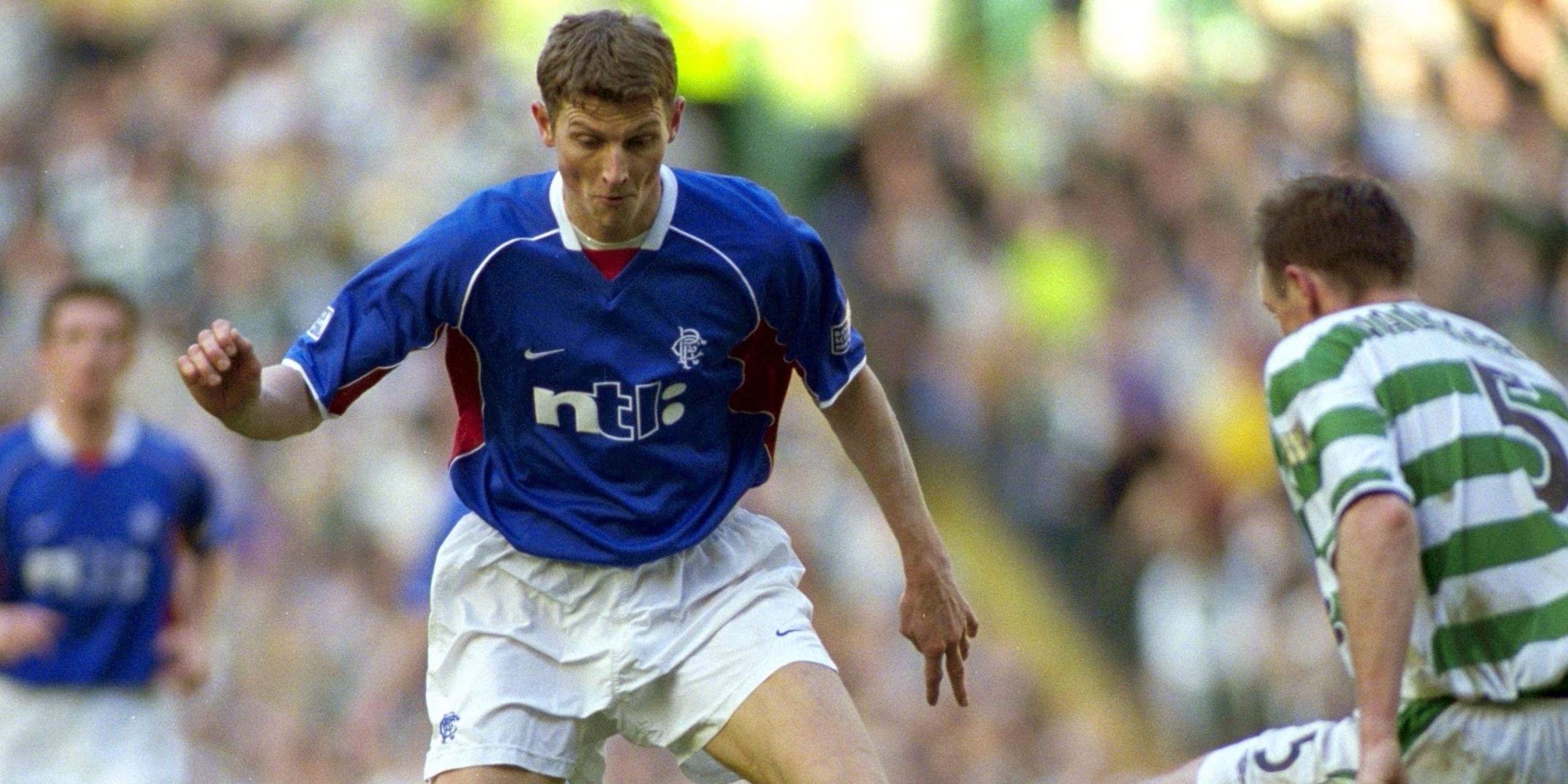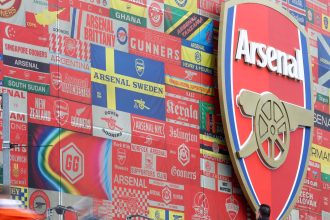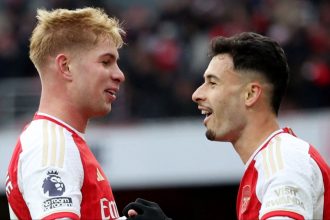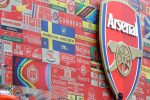Glasgow Rangers are having a season to remember, made even more remarkable considering their dismal performances during the opening stages.
Under Michael Beale, the Ibrox side was heading towards a crisis, no doubt about it. They had crashed out of the Champions League at the final qualifying stages while slipping eight points behind Celtic after just seven Premiership matches.
Philippe Clement took over from the sacked Englishman and has rejuvenated the club over the previous six months, leading the Gers to the verge of a stunning treble success.
Not only has he installed a new-found belief among the squad, but his business in the transfer window has got the Ibrox faithful excited about the future.
Several young talents have arrived in the shape of Mohamed Diomande and Oscar Cortes, indicating that this could be the direction the Belgian will go during the summer window.
While he signed three players, the Gers also missed out on a couple of targets, but this story is as old as time, with previous managers also failing to secure a player they had earmarked.
Even the late great Walter Smith occasionally missed out on the odd player or two whom he had hoped to lure to Ibrox in the hopes of securing European glory to go along with their domestic dominance.
Walter Smith's biggest transfer regret at Rangers
During the 1996/97 campaign, Smith led Rangers to a historic ninth league title in a row, but thoughts soon turned to how he could improve his squad ahead of the following season.
A few years ago, a documentary was released surrounding Ronaldo’s exit from Barcelona in the summer of 1997 and his former agent was on hand to claim that the Light Blues showed a stunning interest in bringing the striker to Ibrox.
"We had nothing against the renewal of Ronaldo with Barca, but we wanted to avoid image contracts and complicated situations,” said Giovanni Branchini, Ronaldo’s agent.
"While the negotiations remained stalled, we observed the interest shown by Lazio, Inter and Glasgow Rangers.”
Despite winning the previous nine titles in a row, Rangers had largely struggled in Europe during this run. They came within a goal of securing a place in the 1993 Champions League final, but that was as close as they would come to achieving glory on the continent.
Signing Ronaldo would certainly have bolstered these ambitions, and the Gers were reportedly even willing to let the Brazilian icon sit out domestic games in their chase for European success.
"The offer from Glasgow Rangers was incredible. They told us he didn’t have to play on a Saturday in the Scottish League,” claimed Branchini.
“They were desperate to win the Champions League and were going to allow him to play in the European matches only.”
It still sounds incredible that Ronaldo – who totalled €99.5m (£85m) in transfer fees during his career – could have rocked up at Ibrox, but he ended up joining Inter Milan instead.
Ronaldo’s career statistics
The two-time World Cup winner has often been revered as one of the greatest strikers of all time, and he was utterly incredible while in full flight.
He's earned a vast amount of praise in his life with Lionel Messi once notably saying: "Ronaldo was my hero. He was the best striker I’ve ever seen. He was so fast he could score from nothing, and could shoot the ball better than anyone.”
Across his career, the “phenomenon” – as so dubbed by Gus Poyet – scored a total of 298 club career goals in 454 matches. Add to this another 62 goals in 99 appearances for the Brazilian national team, and it is clear to see why many regard him as the greatest.
If it weren’t for his various knee injuries, Ronaldo would have scored another couple of hundred goals, without a shadow of a doubt, while it is a testament to his resilience that he came back from a career-ending injury to lead Brazil to the 2002 World Cup.
Real Madrid
177
103
Inter Milan
99
59
PSV Eindhoven
57
54
Barcelona
49
47
Corinthians
42
24
AC Milan
20
9
Cruzeiro
10
2
Via Transfermarkt
Rangers failed to win any trophies throughout the 1997/98 campaign as Smith departed that summer, being replaced by Dick Advocaat – Ronaldo’s previous manager at PSV.
The Dutchman eventually signed a big-name player in November 2000 for the Ibrox side, as Tore Andre Flo made his way to Rangers from Chelsea for a transfer fee in the region of £12m, yet the move did not go as well as anticipated.
Tore Andre Flo’s Rangers statistics
"I've tried many times to get him," said Advocaat upon his arrival. "The last time was in June when I phoned him, but he was still involved with Chelsea. I have been watching the Chelsea side since, and he has not been a regular. But I think he will gel very quickly here."
A goal on his debut against Celtic certainly was the ideal way to get himself onside with the Ibrox faithful quickly, and he added another 12 goals as the club failed to win a trophy for the first time under Advocaat’s leadership.
The 2001/02 campaign saw the Norwegian striker score a respectable total of 25 goals as the club secured a domestic cup double under Alex McLeish, but it proved to be his only full season in Glasgow.
McLeish received an offer of £6.75m from Sunderland during the dying embers of the 2002 summer transfer window, and it was clearly too good an offer for the club to turn down, especially considering their financial situation at the time.
There is no doubt Ronaldo would have been a much bigger talent than Flo and while his agent claims Rangers only wanted him to play in Europe, this statement must be taken with a high degree of fallacy.
Seeing Ronaldo at Ibrox would have been a sensational way for one of the greatest decades in the club’s history to come to a close, but instead, they splashed lavish sums on Flo three years later.
This spending did the Gers more harm than good, and it wasn’t long before managers such as McLeish and Smith (second spell) had to sell off their best talents to make the club sustainable, while resorting to loan deals or free transfers to improve their squads.
There was a period in the 90s’, however, when Rangers were arguably one of the finest teams in Britain and their achievements certainly justify this notion.








